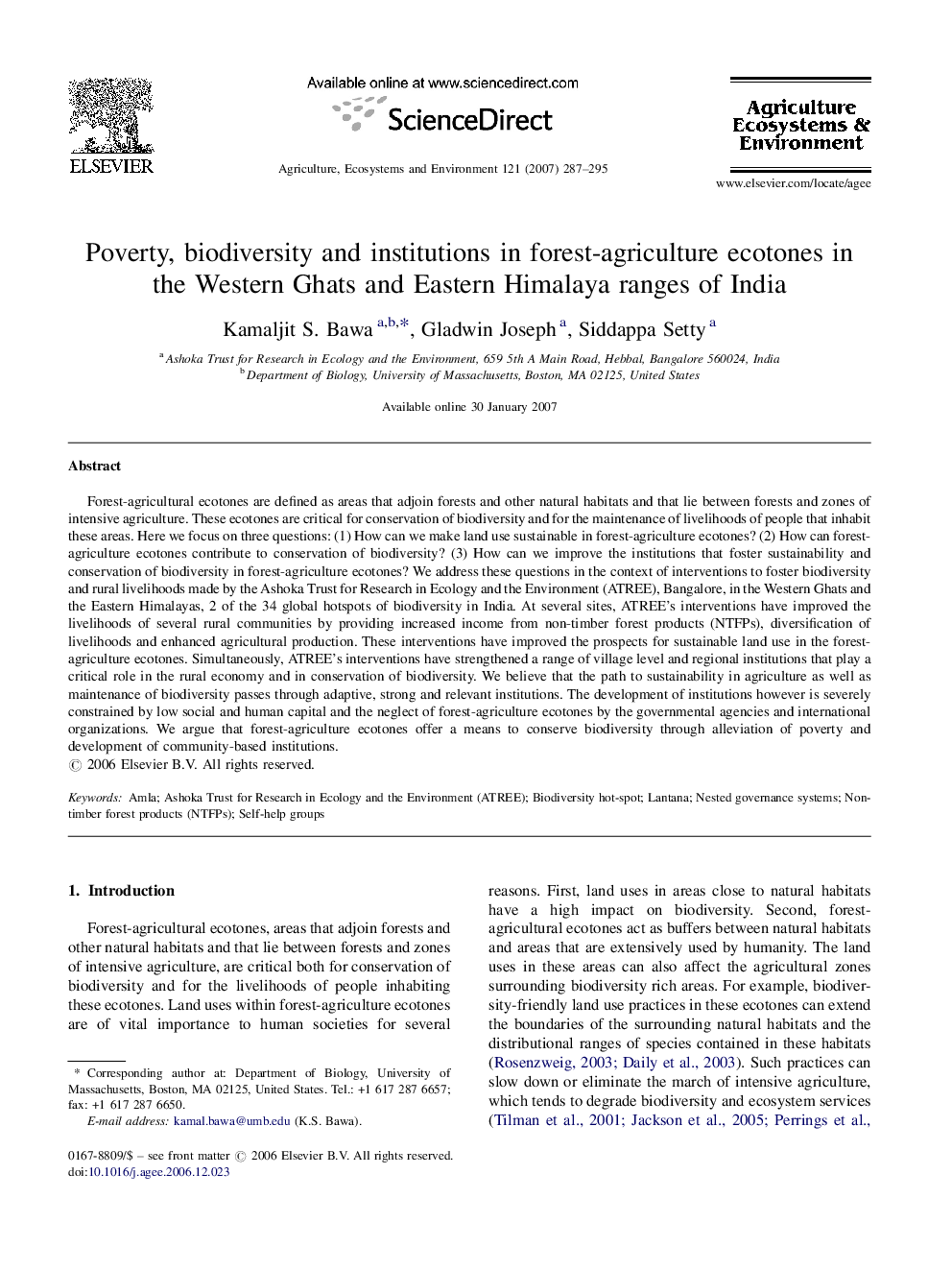| کد مقاله | کد نشریه | سال انتشار | مقاله انگلیسی | نسخه تمام متن |
|---|---|---|---|---|
| 2415731 | 1103975 | 2007 | 9 صفحه PDF | دانلود رایگان |

Forest-agricultural ecotones are defined as areas that adjoin forests and other natural habitats and that lie between forests and zones of intensive agriculture. These ecotones are critical for conservation of biodiversity and for the maintenance of livelihoods of people that inhabit these areas. Here we focus on three questions: (1) How can we make land use sustainable in forest-agriculture ecotones? (2) How can forest-agriculture ecotones contribute to conservation of biodiversity? (3) How can we improve the institutions that foster sustainability and conservation of biodiversity in forest-agriculture ecotones? We address these questions in the context of interventions to foster biodiversity and rural livelihoods made by the Ashoka Trust for Research in Ecology and the Environment (ATREE), Bangalore, in the Western Ghats and the Eastern Himalayas, 2 of the 34 global hotspots of biodiversity in India. At several sites, ATREE's interventions have improved the livelihoods of several rural communities by providing increased income from non-timber forest products (NTFPs), diversification of livelihoods and enhanced agricultural production. These interventions have improved the prospects for sustainable land use in the forest-agriculture ecotones. Simultaneously, ATREE's interventions have strengthened a range of village level and regional institutions that play a critical role in the rural economy and in conservation of biodiversity. We believe that the path to sustainability in agriculture as well as maintenance of biodiversity passes through adaptive, strong and relevant institutions. The development of institutions however is severely constrained by low social and human capital and the neglect of forest-agriculture ecotones by the governmental agencies and international organizations. We argue that forest-agriculture ecotones offer a means to conserve biodiversity through alleviation of poverty and development of community-based institutions.
Journal: Agriculture, Ecosystems & Environment - Volume 121, Issue 3, July 2007, Pages 287–295